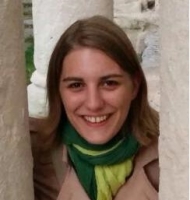My dissertation aims at analyzing literary representations of children’s experiences and practices of diversity in culturally diverse context in Canadian literature. Taking into account theoretical approaches from childhood studies, studies on children’s literature/children in literature, as well as gender, queer and postcolonial studies, I would like to explore how the depicted children are constructed with regard to culturally specific ideas about childhood. In order to do so, I will approach the selected novels with a twofold reading of the child-characters depicted therein: firstly, I intend to examine how children are depicted as “epistemological empty spaces” (Niewenhuys 6) that are to be filled with cultural content. Since these contents and the ways that they are to be acquired are defined by adults, it can be said that children are positioned as passive objects by adults in culturally diverse societies. The expectations that different adult actors have concerning children’s development may contradict each other, thereby pulling and pushing children in different directions at the same time. This type of reading implies the question, how authors construct their child characters in a similar way, i.e. as culturally empty spaces that merely symbolize a more general matter without being potent individuals. Secondly, I will have a look at texts that might break with these patterns and present child characters in a different way, namely not as mere symbols or metaphors, but as individuals capable of challenging the positions that are imposed on them in order to actively position themselves in culturally diverse contexts. My analysis will, furthermore, have a narratological focus, thereby approaching the question of literary presentation techniques to write children and the question of how voicing children in literature works.
Nieuwenhuys, Olga (2012): “Theorizing Childhood(s): Why we need postcolonial perspectives”, in: Childhood 20:1, 3-8.

